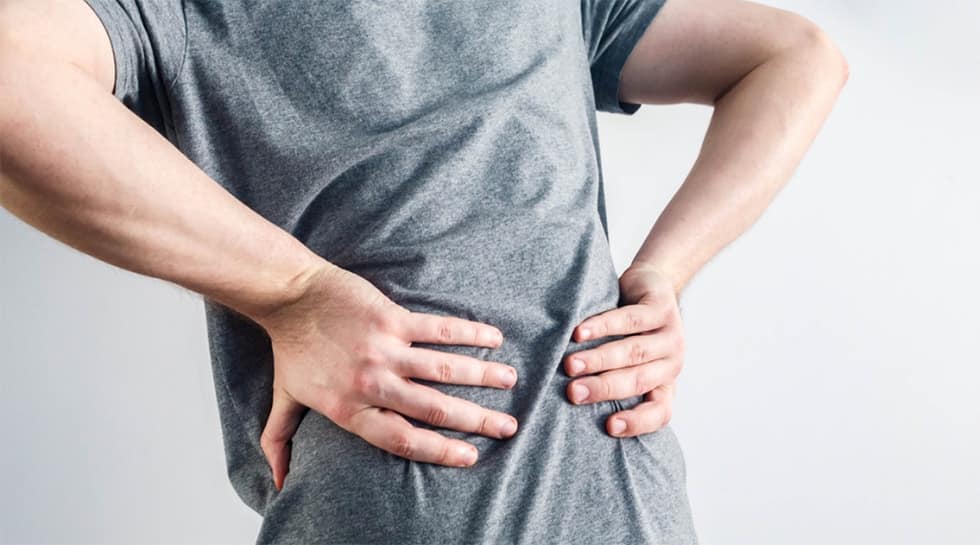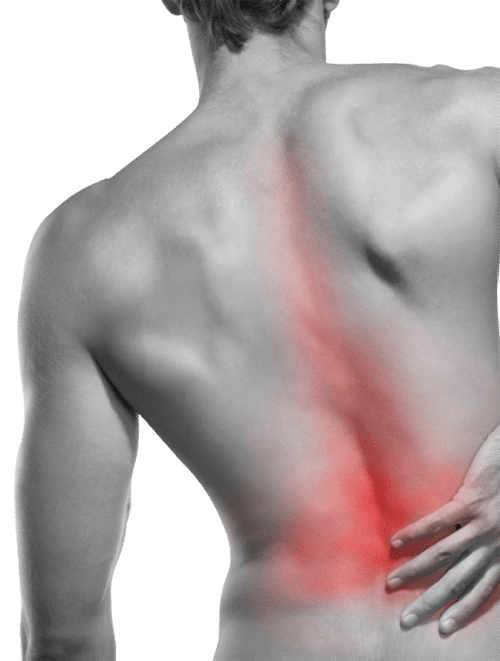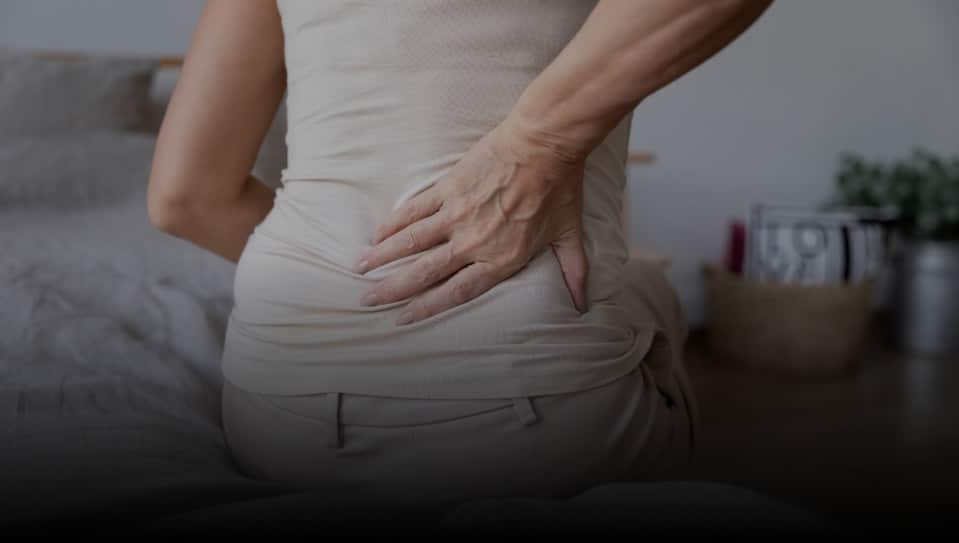If you’ve ever experienced the agony of back pain, you know how debilitating it can be. The good news is that there are effective ways to prevent back pain from recurring. At New Jersey Back Center, our team of board-certified interventional pain specialists is dedicated to helping you live a pain-free life. We believe in taking a proactive approach to back pain management. Preventing back pain from returning is often more effective and less invasive than treating it once it has already occurred. By incorporating simple but essential habits into your daily routine, you can significantly reduce your risk of experiencing recurrent back pain.
In this comprehensive guide, we will share expert advice on how to prevent back pain from coming back, ensuring that you can enjoy a healthy and active lifestyle.

Maintain Good Posture
One of the primary factors that contribute to back pain is poor posture. Incorrect posture places extra stress on your spine, leading to discomfort and pain. To prevent back pain from coming back, follow these posture tips:
- Sit Up Straight: When sitting, keep your back straight with your shoulders relaxed. Use a chair with good lumbar support, or consider using a cushion to support your lower back. Maintaining a neutral spine position reduces the strain on your back’s structures.
- Adjust Your Workspace: If you work at a desk, ensure your computer monitor is at eye level, and your chair provides adequate support for your lower back. An ergonomically designed workspace can significantly reduce the risk of poor posture-related back pain.
- Use Proper Body Mechanics: When lifting objects, bend your knees and hips while keeping your back straight. Avoid twisting while lifting heavy items, as this can lead to muscle strains or even disc herniations. Always prioritize proper lifting technique to protect your spine.
Exercise Regularly
Regular exercise is crucial for maintaining a strong and flexible back. Engaging in activities that strengthen your core muscles and improve flexibility can significantly reduce the risk of back pain. Here are some exercises and activities to consider:
- Strengthen Your Core: Incorporate exercises like planks, bridges, and leg raises to strengthen your abdominal and lower back muscles. A strong core provides better support for your spine, reducing the risk of strain and fractures.
- Stretch Daily: Incorporate stretching into your daily routine, focusing on your hamstrings, hip flexors, and lower back. Yoga and Pilates are excellent choices for improving flexibility, enhancing your range of motion, and reducing muscle tension.
- Cardiovascular Exercise: Engage in regular cardiovascular activities like walking, swimming, or cycling to maintain a healthy weight and improve overall fitness. Excess weight can strain your back and increase the risk of pain. Cardiovascular exercises also promote better blood circulation, which aids in nutrient delivery to your spinal discs.
Maintain a Healthy Weight
Maintaining a healthy weight is not only essential for overall health but also plays a crucial role in preventing back pain. Excess weight, especially around the abdominal area, can strain your back muscles and cause discomfort. Follow these tips to manage your weight effectively:
- Balanced Diet: Consume a balanced diet rich in fruits, vegetables, lean proteins, and whole grains. Avoid excessive consumption of sugary or processed foods. Proper nutrition provides the essential nutrients your spine needs to stay healthy and resilient.
- Portion Control: Be mindful of portion sizes to prevent overeating. Eating smaller, more frequent meals can help control your weight and maintain consistent energy levels. If you’re unsure about your calorie consumption, track your calories in a journal.
- Stay Hydrated: Drinking plenty of water can help with weight management and keep your intervertebral discs adequately hydrated. Hydration is crucial for maintaining the cushioning function of your spinal discs.
Practice Stress Management
Stress can contribute to muscle tension and exacerbate back pain. Learning to manage stress can help prevent the recurrence of back pain. Here are some stress management techniques:
- Deep Breathing: Practice deep breathing to relax your mind and reduce muscle tension. Deep, slow breaths can alleviate stress by activating the relaxation response in your body.
- Mindfulness and Meditation: Engage in mindfulness meditation to stay present and reduce anxiety. This can help prevent muscle tension associated with stress. Regular mindfulness practice also enhances your pain perception, making it easier to cope with any discomfort.
- Regular Sleep: Ensure you get enough restful sleep to allow your body to recover from daily stressors. Proper sleep is essential for overall well-being, as it allows your muscles and tissues to repair and rejuvenate.
Maintain Proper Ergonomics
Proper ergonomics at home and work can significantly reduce the risk of back pain. Ensuring your workspace and daily activities are ergonomically sound is vital in preventing back pain and maintaining a healthy spine. Consider the following ergonomic tips:
- Adjust Your Chair and Desk: Ensure your chair is at the correct height, allowing your feet to rest flat on the ground and your knees at a 90-degree angle. Your desk should also be at a comfortable height to reduce strain on your neck and back.
- Use an Ergonomic Chair: If possible, invest in an ergonomic chair with lumbar support to maintain proper posture while sitting. Lumbar support helps maintain the natural curve of your lower back, and it helps you avoid the slumped posture that many people develop.
- Ergonomic Accessories: Use ergonomic accessories like a keyboard tray and a monitor stand to optimize your workspace setup. These accessories help you achieve a more comfortable and productive work environment.
Lift Objects Safely
Improper lifting techniques can exact a heavy toll on your back. When you bend at the waist instead of your knees and twist while lifting, you subject your spine to excessive strain. This can result in muscle sprains, herniated discs, and chronic back pain. To prevent injury and back pain, follow these guidelines when lifting objects:
- Bend Your Knees: Always bend your knees and hips, not your waist, when lifting heavy objects. Keep the object close to your body to reduce the strain on your lower back.
- Avoid Twisting: Do not twist your body while lifting. Instead, pivot your feet to turn in the direction you want to go. Twisting can place excessive stress on your spine.
- Get Help: If an object is too heavy or awkward to lift on your own, ask for assistance. It’s better to be safe than to risk injuring your back. Collaborate with a partner or use appropriate equipment to handle heavy loads.
Wear Comfortable Footwear
Choosing the wrong footwear can have far-reaching consequences for your back. Shoes lacking proper arch support or cushioned soles can disrupt your body’s alignment, affecting your posture. Over time, this misalignment may lead to muscle imbalances and back pain. Consider the following tips when choosing footwear:
- Proper Arch Support: Invest in shoes that provide adequate arch support to help distribute your body weight evenly. Proper arch support contributes to the alignment of your spine.
- Cushioned Soles: Shoes with cushioned soles can help absorb shock while walking, reducing the strain on your back. Choose footwear that offers cushioning in the heel.
- Avoid High Heels: Limit the use of high heels, as they can alter your posture and put extra pressure on your lower back. If you must wear heels, opt for lower, wider heels, and limit the time you spend in them.
Get Regular Check-ups
Regular check-ups with your healthcare provider are not just about addressing existing issues; they are vital for preventive care. These visits enable early detection of potential back problems, allowing for timely intervention. An evaluation by a back pain doctor can provide personalized guidance to maintain a healthy back and reduce the risk of recurring pain. Make sure to:
- Visit Your Back Pain Doctor: Schedule regular check-ups with your healthcare provider to discuss any concerns about your back health. Your back pain doctor can provide guidance on maintaining a healthy back and address any emerging issues.
- Consult a Specialist: If you have a history of back pain or suspect an underlying issue, consider consulting an interventional pain specialist for a thorough evaluation. Specialists can provide tailored recommendations based on your unique needs.
- Follow Medical Advice: If you’ve been prescribed medication or given specific exercises by a healthcare professional, be sure to follow their recommendations diligently. Compliance with medical advice can significantly improve your chances of preventing back pain.
Seek Professional Guidance
If you’ve experienced recurring back pain, it’s essential to seek professional guidance from experts like us at New Jersey Back Center. Our team of board-certified interventional pain specialists is dedicated to diagnosing the root cause of your pain and providing tailored treatment options. We exclusively offer minimally invasive pain treatments to target the source of your pain without invasive surgeries or opioids. Minimally invasive treatments can include nerve blocks, injections, and radiofrequency ablation. These procedures are performed with precision, leading to minimal discomfort and a quicker recovery.
Visit Your Nearest New Jersey Back Center
New Jersey Back Center has multiple locations to serve you better. Visit one of our back centers for personalized care and treatment options.
- Clifton: Our office is located at 1117 US-46, Suite 205 in Clifton. It’s conveniently situated on Route 46-E, right off NJ-3, near the Garden State Parkway.
- West Orange: Visit our office at 445 Pleasant Valley Way in West Orange, situated in the same office as Twinboro Physical Therapy and Dr. Michael Rieber/Orthopedics Unlimited.
- Paramus: Our Paramus office, at 140 NJ-17, Suite 269, is located just off NJ-17 and the Garden State Parkway. There are ample parking spaces available.
- Woodland Park: If you’re in Woodland Park, you can find us at 1167 McBride Avenue, Suite 200, conveniently located near Garden State Plaza.
At New Jersey Back Center, our mission is to help you prevent back pain from coming back. By implementing these strategies and seeking our expertise, you can maintain a pain-free life. Don’t let recurring back pain hold you back from enjoying life to the fullest. Contact us today to schedule an appointment and take the first step toward a pain-free future. We’re here to support you every step of the way. Your journey to a healthier back starts with us.





